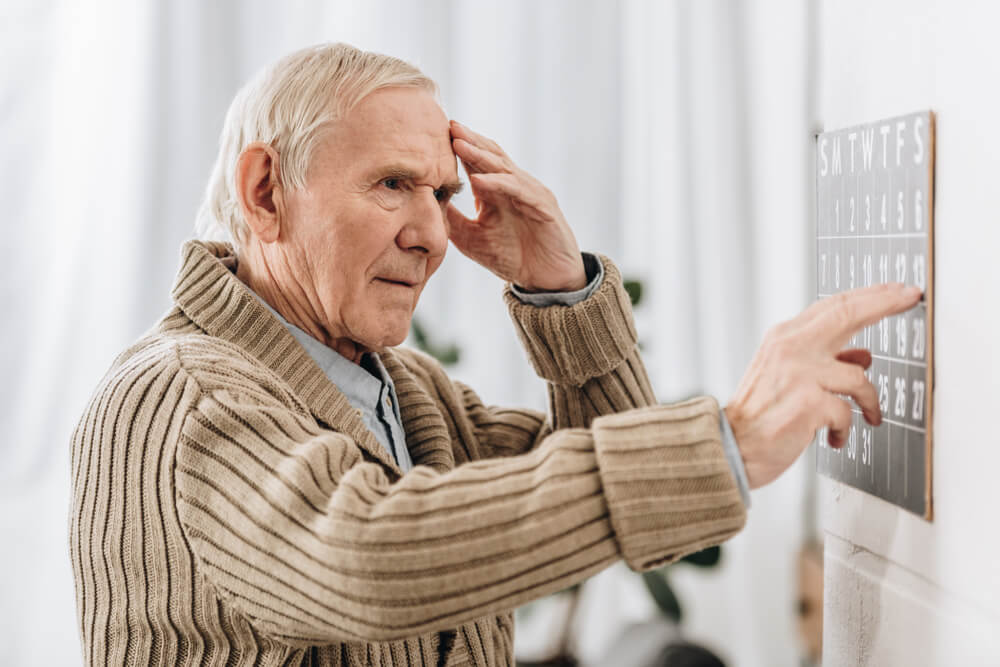As people grow older, it’s common to notice small changes in memory — forgetting a name, misplacing keys, or taking longer to recall a word. These lapses can be frustrating, but not all memory loss is a sign of serious illness. In fact, mild forgetfulness is a natural part of aging.
Still, maintaining brain health is essential for independence, confidence, and quality of life. In this article, we’ll explore what causes memory changes in aging adults, how to tell the difference between normal forgetfulness and more serious concerns, and practical ways to support cognitive well-being.
Why Memory Changes with Age
Aging affects every part of the body, including the brain. Over time, brain cells may shrink slightly, communication between neurons can slow, and blood flow to the brain may decrease. These natural changes can make it harder to multitask or recall details quickly.
However, it’s important to remember that occasional forgetfulness is different from serious memory impairment. Forgetting where you placed your glasses is normal; forgetting what they are used for may not be. Understanding this distinction can help families approach the topic of memory with more calm and confidence.
Common Causes of Memory Lapses
Memory issues in older adults can stem from a variety of factors — many of which are reversible or manageable. Below are some common contributors:
- Normal Aging: The brain naturally processes information more slowly as we age. Simple lapses, like forgetting names or appointments, are usually harmless and often recalled later.
- Stress and Anxiety: Emotional strain or prolonged stress can make concentration difficult, which affects how memories are stored and retrieved.
- Sleep Problems: Poor sleep reduces the brain’s ability to form and retain memories. Older adults who experience insomnia or sleep apnea often report more forgetfulness.
- Medication Side Effects: Certain prescription drugs — including those for blood pressure, allergies, or pain — may cause drowsiness or confusion. Reviewing medications with a healthcare provider can sometimes clarify the issue.
- Poor Nutrition or Dehydration: The brain depends on balanced nutrition to function efficiently. Diets low in essential nutrients (like B vitamins, omega-3 fatty acids, or antioxidants) can affect memory performance.
- Lack of Mental Stimulation: Like muscles, the brain benefits from regular exercise. Without mental challenges or social interaction, cognitive sharpness can decline more quickly.
- Underlying Medical Conditions: Certain conditions such as thyroid disorders, vitamin deficiencies, or depression can mimic memory loss. Addressing these underlying issues often improves mental clarity.
Normal Memory Loss vs. Cognitive Impairment
Not every form of memory loss is the same. Recognizing the difference between age-related forgetfulness and cognitive impairment is key:
| Type | Description | Common Signs |
|---|---|---|
| Normal Aging | Mild, occasional memory slips that don’t disrupt daily life. | Misplacing items, forgetting names, occasionally missing appointments. |
| Mild Cognitive Changes | Noticeable but manageable difficulties with focus or recall. | Needing reminders more often, struggling to keep track of details. |
| Serious Memory Loss | Significant, progressive memory problems affecting independence. | Forgetting familiar faces, getting lost in known places, difficulty with everyday tasks. |
If memory problems become severe enough to affect daily living — such as forgetting how to use household appliances or struggling with personal hygiene — it’s wise to seek professional evaluation. While this article doesn’t offer medical advice, a qualified healthcare provider can perform assessments to determine potential causes.
Healthy Habits to Support Memory in Older Adults
While aging is inevitable, there are many ways to keep the mind active and resilient. These lifestyle habits can promote long-term brain health and reduce the impact of memory decline.
Stay Physically Active
Exercise increases blood flow to the brain and encourages the growth of new neural connections. Activities like walking, swimming, or tai chi can improve both physical and cognitive function. Even 30 minutes a day, five times a week, can make a difference.
Keep the Mind Engaged
Challenge your brain regularly with stimulating activities:
- Reading books or newspapers
- Solving puzzles or crosswords
- Learning a new language or musical instrument
- Playing strategy games
- Attending educational classes for seniors
These activities strengthen neural connections and help preserve mental agility.
Eat for Brain Health
A diet rich in fruits, vegetables, whole grains, lean proteins, and healthy fats supports optimal brain performance. Specific nutrients that may benefit cognitive function include:
- Omega-3 fatty acids (found in salmon, walnuts, flaxseeds)
- Antioxidants (berries, leafy greens, dark chocolate)
- B vitamins (whole grains, eggs, legumes)
Hydration also plays a role — even mild dehydration can cause confusion or fatigue.
Maintain Social Connections
Social engagement keeps the brain active and reduces feelings of loneliness, which can contribute to cognitive decline. Staying connected with friends, joining clubs, or volunteering are excellent ways to maintain emotional and mental health.
Prioritize Restful Sleep
During deep sleep, the brain consolidates memories and removes toxins. Older adults should aim for 7–8 hours of quality sleep per night. Creating a relaxing bedtime routine — avoiding screens, keeping a cool room, and limiting caffeine — can improve sleep quality.
Manage Stress Mindfully
Chronic stress increases the hormone cortisol, which can interfere with memory formation. Relaxation techniques like meditation, gentle yoga, breathing exercises, or spending time in nature can help maintain mental calm and focus.
Review Medications Regularly
Since some medications may affect memory or concentration, it’s wise to discuss all prescriptions and supplements with a healthcare professional. Never stop or change medication on your own.
Creating a Brain-Healthy Environment
Daily routines and surroundings also play a major role in supporting memory. Try these small but effective strategies:
- Keep a consistent schedule: Routines make it easier to remember tasks.
- Use reminders: Calendars, smartphone alerts, or sticky notes can prevent missed appointments.
- Organize spaces: Keep commonly used items (like keys or glasses) in the same place.
- Label drawers or storage bins: Visual cues can help older adults stay independent.
- Limit distractions: A calm, clutter-free environment supports better focus.
These adjustments may seem simple, but they significantly reduce frustration and mental fatigue.
When to Seek Professional Guidance
Occasional forgetfulness is natural, but persistent confusion or difficulty managing daily life warrants professional attention.
If you or someone you know experiences repeated disorientation, personality changes, or increasing difficulty completing familiar tasks, it’s best to consult a healthcare provider.
A clinician can perform memory and cognitive assessments, review medications, and recommend appropriate steps for support — whether that means lifestyle changes, therapy, or community programs.
Final Thoughts
Memory loss is one of the most common — and often misunderstood — parts of aging. While some decline is normal, many factors influencing memory are manageable with healthy habits, awareness, and social support.
By staying mentally active, maintaining good nutrition, exercising regularly, and nurturing relationships, older adults can protect cognitive health and preserve independence well into later life.
The key is not to focus on what’s lost, but to strengthen what remains — curiosity, resilience, and the lifelong ability to learn and adapt.






